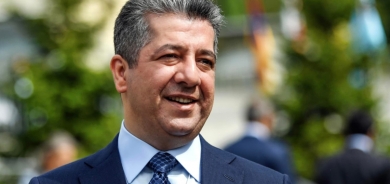New Caledonia referendum leaves independence movement hopeful

On the final count, 56.4 percent of voters chose to remain under French rule, with turnout high at 80.63 percent.
The outcome came somewhat as a surprise, with earlier polls forecasting that 63-75 percent of New Caledonians would vote “no” in the referendum.
Leaders of the Kanak and Socialist National Liberation Movement (FLNKS) hailed the narrow vote as a step closer to breaking free of France. Under a 1998 deal called the Nouméa Accord to devolve powers to the territory, two further referendums can be held by 2022.
"We're a short step away from victory and there are still two votes to come," Alosio Sako, a leading member of FLNKS, said.
French Prime Minister Édouard Philippe arrived on the archipelago on Monday to meet political forces on both sides of the independence vote to discuss the future of the overseas territory.
“There are people who are happy with the result and others who are disappointed, but overall it went well,” Philippe said following the vote.
Ethnic tensions
Yet there are fears the referendum could stoke tensions between the indigenous Kanak people and the white population that has settled since France colonised New Caledonia in 1853.
The longtime victims of harsh segregation policies, many in the Kanak community now live in poverty, plagued by high school dropout rates, chronic unemployment and poor housing conditions.
Tensions boiled over into ethnic violence in the 1980s, claiming the lives of more than 70 people. The unrest ultimately led to the Nouméa Accord, which paved the way for Sunday’s referendum.
Several cars were burned and a couple of incidents of stone-throwing were reported late in the evening, local authorities said, but the vote was otherwise peaceful.
Independence leaders had urged Kanak voters to choose self-determination for Kanaky, their name for New Caledonia, and throw off the shackles of the "colonial" authorities in France.
As well as being home to French troops and being a source of nickel, the territory gives France a large, exclusive economic zone in the Pacific and rich fishing resources.
But less than 50 percent of the local population is indigenous, and some Kanaks support staying part of France for economic reasons. The archipelago receives €1.3 billion ($1.5 billion) in funding from the French government each year.
"I'm not sure we have all the assets we'd need to succeed," Marc Gnipate, a 62-year-old pensioner, told AFP.
New Caledonia is not the only French overseas territory to seek independence in recent years. French Guiana in South America and the Indian Ocean archipelago of Mayotte have been rocked by major protests over living standards and perceived neglect.
Closer to home, the French government also faces renewed calls for independence from nationalists on the Mediterranean island of Corsica, which have been rebuffed by Macron.
(FRANCE 24 with AFP)














